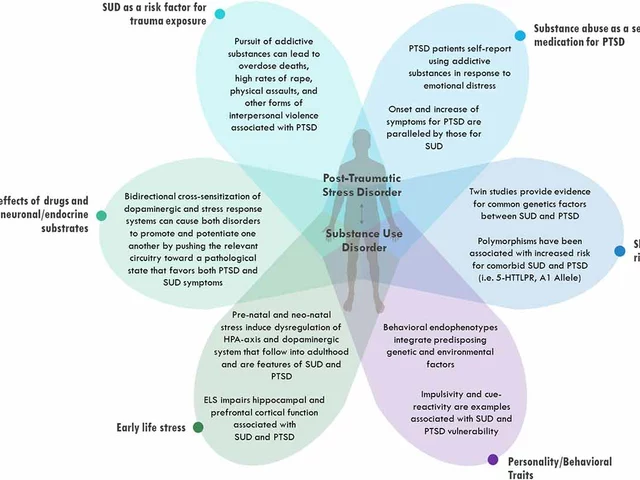Understanding the Risks Associated with Cat Bites
Cat bites are often underestimated in terms of the potential health risks they pose. Despite their small size, a cat's teeth can cause deep puncture wounds that introduce bacteria into the body, leading to serious infections. The primary culprit behind these infections is *Pasteurella multocida*, a bacterium commonly found in the mouths of cats. Without prompt and appropriate treatment, the bacteria can spread, leading to complications such as cellulitis, abscesses, or even systemic infections that can be life-threatening.
According to Dr. Grace Haser, a fellow at the University of San Francisco Department of Infectious Disease, it is vital to treat cat bites with the appropriate antibiotics to prevent these complications. Dr. Haser stresses the importance of seeking medical attention following a cat bite, especially if the bite is severe or occurs in a high-risk area such as the face, hands, or genitals.
The Role of Antibiotics in Treating Cat Bites
The first-line antibiotic recommended for cat bites is amoxicillin-clavulanate. This oral antibiotic is chosen for its broad spectrum of activity against the most common bacteria causing infections from cat bites, including *Pasteurella multocida*. Amoxicillin-clavulanate combines amoxicillin, a penicillin-type antibiotic, with clavulanate, a beta-lactamase inhibitor that enhances its effectiveness against resistant bacteria.
Dr. Haser advises that most cat bites warrant antibiotic prophylaxis, especially if there are signs of infection such as redness, swelling, pain, or pus around the wound. In cases where amoxicillin-clavulanate is not suitable, due to allergies or other reasons, alternative antibiotics such as doxycycline or cefuroxime may be prescribed.
Recognizing When Medical Attention is Necessary
While minor cat bites may be managed at home with proper wound care, certain situations necessitate immediate medical attention. Deep puncture wounds, excessive bleeding, or bites in high-risk areas should be evaluated by a healthcare professional. Additionally, signs of a systemic infection—such as fever, swollen glands, night sweats, or a general feeling of malaise—indicate the need for prompt medical intervention.
Dr. Haser emphasizes the importance of wound care: cleaning the bite area thoroughly with soap and water, applying an antiseptic, and covering it with a clean bandage. It's also crucial to monitor the wound for signs of infection in the ensuing days and seek medical care if symptoms worsen.
Preventing Cat Bites
Understanding why cat bites occur can help in preventing them. Cats may bite for several reasons, including play, anxiety, stress, or if they feel threatened or provoked. Recognizing the signals a cat gives before it bites—such as flicking the tail, flattening the ears, or growing—is key to preventing an attack.
Experts recommend not to play rough with cats using your hands or fingers, as this can encourage them to see human hands as toys. Instead, use cat toys that keep your hands at a safe distance from their mouths. It's also advisable to provide cats with a calm environment, avoiding sudden loud noises or stressful situations that may provoke a defensive reaction.
The Importance of Veterinary Care
Regular veterinary care can also play a role in preventing bites. A cat that is in pain or discomfort due to an underlying health issue may be more prone to biting. Ensuring that a cat is healthy and well looked after can reduce the likelihood of them becoming aggressive. If a cat's behavior changes suddenly or they become more aggressive, it's wise to consult a vet to rule out medical causes.
Conclusion
Cat bites, although common, should never be taken lightly. The risk of infection remains significant due to the bacteria present in a cat's mouth. Understanding the importance of timely and correct treatment, including the use of antibiotics like amoxicillin-clavulanate, can prevent complications. Dr. Haser's guidance underscores the need for vigilant wound care, recognizing when professional medical attention is necessary, and taking steps to prevent bites in the first place.
By being informed and prepared, cat owners and those who interact with cats can reduce the risks associated with cat bites, ensuring both human and animal health and safety.





August 21, 2024 AT 09:55 AM
I got bit by my cat last winter and ignored it. Thought it was fine. Turns out I had a mini abscess. Never again. Antibiotics saved my hand.
Don't be like me.
August 22, 2024 AT 14:43 PM
I use amoxicillin-clavulanate for my dog bites too 😅 guess cats and dogs both got nasty mouths. My vet said the same thing. Always clean it with soap and water first. My cat hates baths but I don't care if she bites me again.
August 23, 2024 AT 02:48 AM
Proper wound care is non-negotiable. Soap, water, antiseptic, bandage. Then monitor. If it swells or gets warm, go to the doctor. No exceptions. I've seen people ignore this and end up in the ER with IV antibiotics. It's preventable.
August 24, 2024 AT 08:23 AM
Pasteurella multocida is a gram-negative facultative anaerobe with rapid proliferation kinetics in deep tissue microenvironments. Amoxicillin-clavulanate inhibits penicillin-binding proteins and beta-lactamase activity. Failure to administer within 8 hours increases sepsis risk by 300%.
August 26, 2024 AT 06:29 AM
This is excellent, practical advice. I work in emergency medicine and see cat bite infections all the time. Most patients think 'it's just a cat' and delay care. Please, if you're reading this-don't wait. Get it checked. Your future self will thank you.
August 27, 2024 AT 20:45 PM
Honestly, why do people even keep cats? They're just tiny terrorists with claws. I'd rather get bit by a dog. At least dogs look you in the eye before they attack.
August 28, 2024 AT 08:54 AM
I love my cat so much but she bit me last week and I freaked out 😭 I cleaned it right away and called my doc and they gave me the amoxicillin thing and I'm fine now! Just wanted to say-don't panic, just act fast. You got this!
August 28, 2024 AT 17:13 PM
I've had two cats over the years. One was a gentle giant, the other bit me for no reason. Turned out the second one had a tooth abscess. Never assume aggression is behavioral. Always rule out pain first. Vet visit before you assume it's 'just being a cat'.
August 29, 2024 AT 02:23 AM
People who don't take cat bites seriously are irresponsible. This isn't a suggestion-it's a medical emergency. If you're the type to say 'it'll heal on its own,' you're one infection away from losing a finger. Wake up.
August 30, 2024 AT 10:10 AM
Amoxicillin-clavulanate? How... pedestrian. Have you considered the efficacy of linezolid in refractory Pasteurella cases? Or perhaps a culture-guided regimen using MALDI-TOF? I mean, one mustn't simply default to first-line agents when one has access to... *advanced diagnostics*.
August 31, 2024 AT 22:29 PM
I just have to ask-did you wash your hands after petting your cat before you got bit? Because I think the real issue is hygiene, not the bite. You're letting your cat walk all over your kitchen counter, aren't you?
September 1, 2024 AT 20:29 PM
I'm a vet tech and I've seen people come in with cat bites and say 'it was just play'... no. No it wasn't. You encouraged it. You let them bite your fingers. You're lucky you didn't lose your thumb. Stop being a victim and start being responsible.